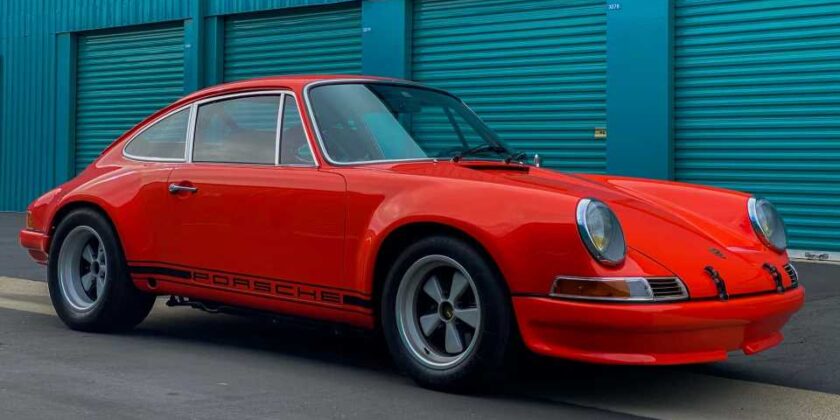With nearly 200,000 cars sold between 1973 and 1989, the G-Series represents the most prolific 911 series ever produced by Porsche. EV specialist Everrati has given the sports car a new lease on life by removing the oily bits and installing an electric drivetrain. The coupe takes after the ST sold in limited numbers in 1970 and 1971 but does away with the 2.0- and 2.4-liter engines offered back in the day. To be clear, it’s not based on an actual 911 ST.
A real 911 ST had as much as 270 horsepower, but Everrati has taken this classic 911 to a meaty 440 hp, all of which is routed to the rear axle. The newly gained electric muscle helps the ST-inspired model reach 60 mph (96 km/h) from a standstill in less than four seconds. It features a 60-kWh battery pack providing a maximum range of more than 200 miles (322 kilometers).
Porsche 911 G-Series by Everrati
For its latest project, Everrati joined forces with Pennsylvania-based RS Werks, a Porsche restoration and customization company. One of the priorities was to keep weight as close to the original as possible. While an exact figure hasn’t been published, the Porsche 911 ST tipped the scales at just 2,120 pounds (960 kilograms). The two companies also focused on maintaining the weight distribution of the real 911 ST.
Speaking of which, Porsche is bound to revive the 911 ST later this year as part of the brand’s 75th-anniversary celebrations. It’s been repeatedly spied on the Nürburgring and could break cover as early as June 8, although the house of Zuffenhausen has yet to confirm the debut date. The car is expected to be the lightest iteration of the 992 yet and feature the naturally aspirated 4.0-liter flat-six engine of the GT3.
As for Everrati, its area of expertise extends beyond the Porsche 911 since it also works on the original Range Rover and Defender. In addition, previous projects have included the Ford GT40 and a Mercedes W113 SL Pagoda.
EV conversions could become the only solution to save old cars from extinction after the ICE age is over unless synthetic fuels become feasible for mass production.
Source: Read Full Article

